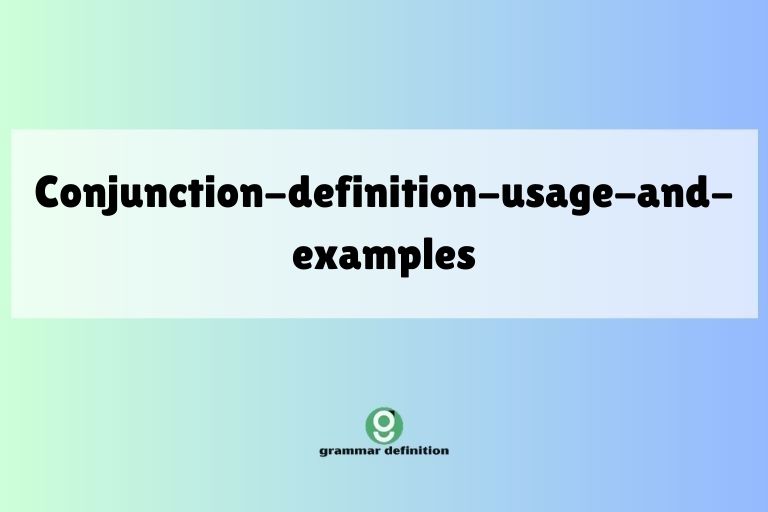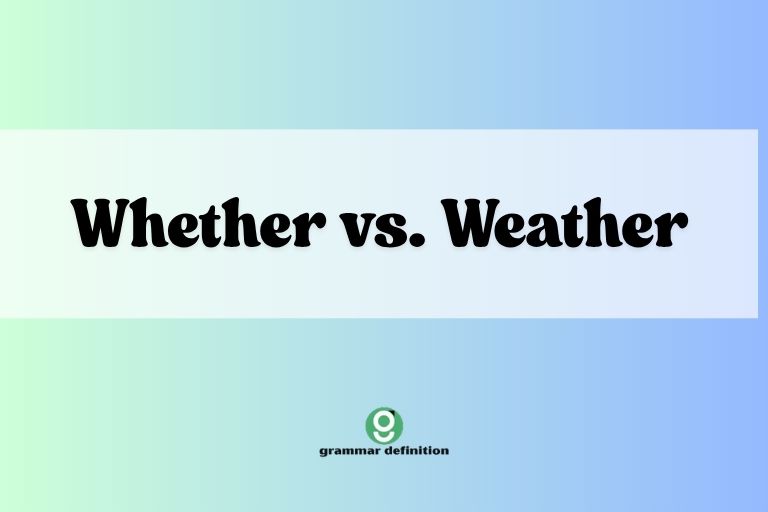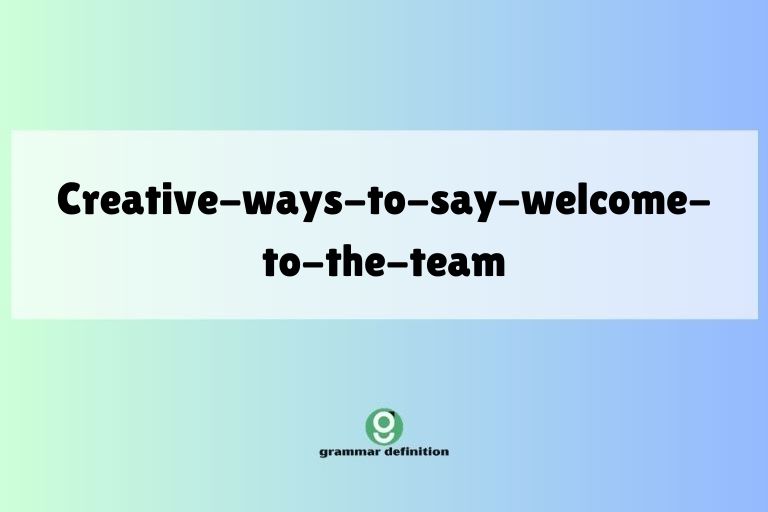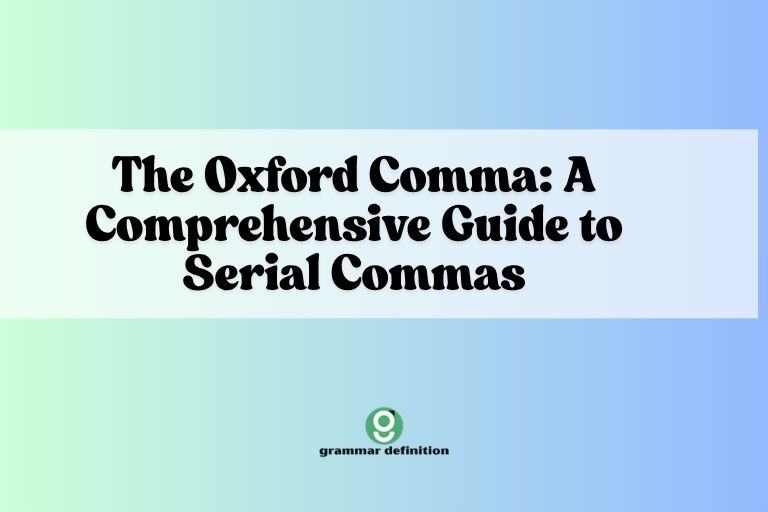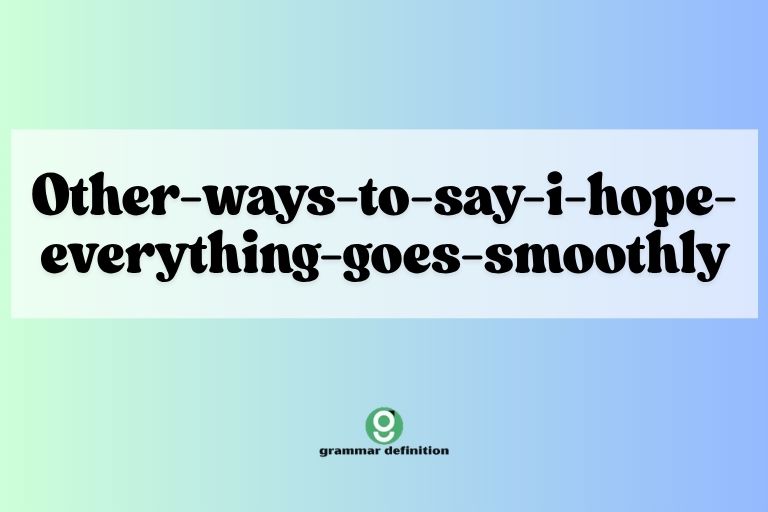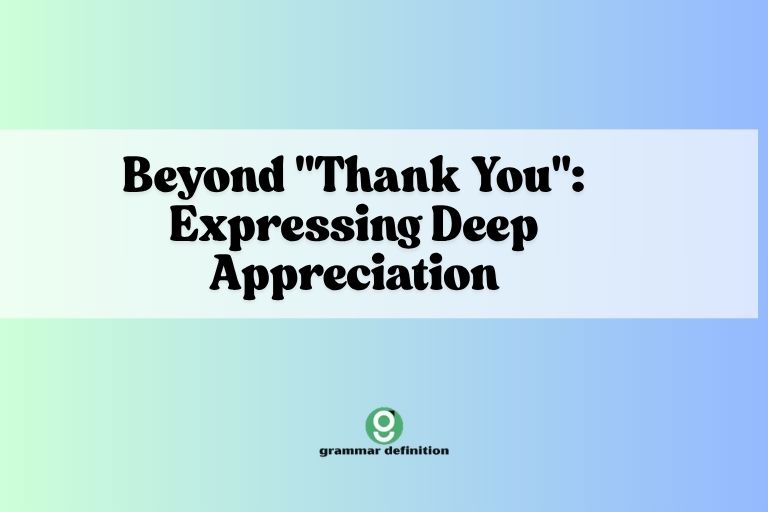Nevertheless vs. Nonetheless: Mastering Nuances of Contrast
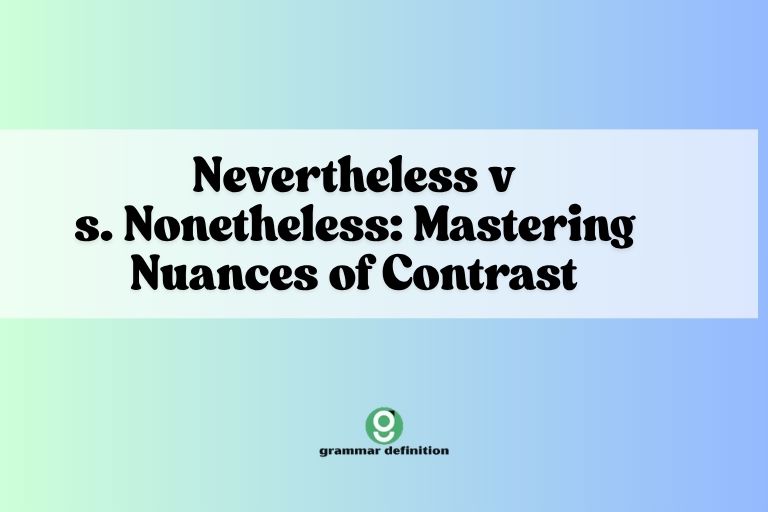
Understanding the subtle differences between “nevertheless” and “nonetheless” is crucial for crafting precise and sophisticated English prose. These adverbs, both signaling contrast or concession, are often used interchangeably, but a deeper understanding reveals nuances that can elevate your writing.
This article provides a comprehensive guide to mastering “nevertheless” and “nonetheless,” exploring their definitions, structural roles, usage rules, and common pitfalls. Whether you’re an ESL learner, a student honing your writing skills, or a professional seeking to refine your communication, this guide will equip you with the knowledge to use these words with confidence and accuracy.
This article will delve into the intricacies of these words, offering practical examples and exercises to solidify your understanding. By exploring their subtle differences and similarities, you’ll be able to choose the most appropriate word for any given context, enhancing the clarity and impact of your writing.
Table of Contents
- Introduction
- Definitions: Nevertheless and Nonetheless
- Structural Breakdown
- Types and Categories
- Examples of Usage
- Usage Rules and Guidelines
- Common Mistakes and How to Avoid Them
- Practice Exercises
- Advanced Topics
- Frequently Asked Questions
- Conclusion
Definitions: Nevertheless and Nonetheless
Both nevertheless and nonetheless are adverbs that introduce a statement that contrasts with or contradicts something that has been said previously. They essentially mean “in spite of that” or “even so.” They indicate that the following statement is true despite the preceding one.
Nevertheless is generally considered slightly more formal than nonetheless and is often used to introduce a more significant contrast or qualification. It implies a stronger sense of “despite everything.”
Nonetheless, while also indicating contrast, often suggests a less significant obstacle or concern. It can imply that the contrast is not as strong or surprising as “nevertheless” might suggest. Both words serve to connect ideas and create logical flow within a text.
Structural Breakdown
Both “nevertheless” and “nonetheless” function similarly within a sentence. They typically appear in one of three positions:
- At the beginning of a sentence: Followed by a comma, they introduce a statement that contrasts with the previous sentence or paragraph.
- In the middle of a sentence: Set off by commas, they interrupt the flow of the sentence to introduce a contrasting idea.
- At the end of a sentence: Preceded by a comma, they add a contrasting element to the statement. This is less common, particularly with “nevertheless.”
The choice of position can slightly alter the emphasis of the sentence. Placing the adverb at the beginning often highlights the contrast, while placing it in the middle or at the end can soften the impact.
Types and Categories
While “nevertheless” and “nonetheless” are not strictly categorized into different ‘types,’ it’s helpful to understand the nuances of their usage based on the strength of the contrast they introduce. We can think of them as existing on a spectrum of concession.
Stronger Concession: Nevertheless
Used when the contrast is significant or surprising. It emphasizes that the second statement holds true despite a considerable obstacle or opposing factor.
Weaker Concession: Nonetheless
Used when the contrast is less pronounced or when the obstacle is not as significant. It suggests that the second statement is true even if there’s a slight reason for it not to be.
The distinction between these two categories is subtle and often context-dependent. The best choice often depends on the writer’s intended emphasis and the specific relationship between the contrasting ideas.
Examples of Usage
The following sections provide numerous examples of “nevertheless” and “nonetheless” used in various contexts to illustrate their different shades of meaning and structural placements.
Examples with Nevertheless
The table below demonstrates the use of “nevertheless” in different sentence structures and contexts. Notice the strong sense of contrast in each example.
| Sentence | Context |
|---|---|
| The weather was terrible; nevertheless, they decided to go for a hike. | Despite the bad weather, they proceeded with their plans. |
| He failed the exam; nevertheless, he remained optimistic about his future. | Despite failing, he didn’t lose hope. |
| The project was behind schedule and over budget; nevertheless, the team persevered. | Despite the challenges, the team continued to work hard. |
| She was exhausted; nevertheless, she agreed to help her friend move. | Even though she was tired, she offered assistance. |
| The evidence was circumstantial; nevertheless, the jury found him guilty. | Despite the weak evidence, the verdict was guilty. |
| The task was difficult; nevertheless, he completed it successfully. | Despite the difficulty, he succeeded. |
| The restaurant was expensive; nevertheless, the food was delicious. | Despite the high price, the food was enjoyable. |
| He had a headache; nevertheless, he attended the meeting. | Despite the discomfort, he participated in the meeting. |
| The car was old; nevertheless, it ran smoothly. | Despite the age, the car functioned well. |
| She was nervous; nevertheless, she delivered a great presentation. | Despite her anxiety, she gave a successful presentation. |
| The instructions were confusing; nevertheless, he managed to assemble the furniture. | Despite the unclear instructions, he put the furniture together. |
| The traffic was heavy; nevertheless, they arrived on time. | Despite the traffic, they weren’t late. |
| He was injured; nevertheless, he finished the race. | Despite the injury, he completed the race. |
| The movie received bad reviews; nevertheless, it was a box office success. | Despite the negative reviews, the movie was popular. |
| The book was long; nevertheless, I enjoyed reading it. | Despite the length, I found the book enjoyable. |
| The cake was burnt; nevertheless, it tasted good. | Despite being burnt, the cake was palatable. |
| The room was dark; nevertheless, I could see clearly. | Despite the darkness, my vision was fine. |
| The computer was slow; nevertheless, I finished my work. | Despite the slowness, I completed my tasks. |
| The road was bumpy; nevertheless, the journey was smooth. | Despite the uneven road, the ride was comfortable. |
| The shirt was torn; nevertheless, he wore it to the party. | Despite the tear, he wore the shirt to the party. |
| The tea was cold; nevertheless, I drank it. | Despite the coldness, I consumed the tea. |
| The shoes were tight; nevertheless, she wore them all day. | Despite the tightness, she wore the shoes for the whole day. |
| The coffee was bitter; nevertheless, I enjoyed it. | Despite the bitterness, I liked the coffee. |
| The chair was broken; nevertheless, he sat on it. | Despite the chair being broken, he sat on it. |
| The pen was out of ink; nevertheless, she tried to write with it. | Despite the pen being out of ink, she tried to write with it. |
Examples with Nonetheless
The table below showcases the use of “nonetheless,” often implying a less significant contrast or obstacle compared to “nevertheless.”
| Sentence | Context |
|---|---|
| The room was a bit small; nonetheless, it was comfortable. | Although small, the room was still pleasant. |
| He was slightly disappointed; nonetheless, he congratulated the winner. | Despite his disappointment, he showed good sportsmanship. |
| The movie was long; nonetheless, I found it entertaining. | Even though it was lengthy, I enjoyed the movie. |
| The task was challenging; nonetheless, she was determined to complete it. | Despite the challenge, she was resolved to finish. |
| The food was not the best; nonetheless, I ate it. | Even though the food wasn’t great, I still ate it. |
| The price was high; nonetheless, he bought the product. | Despite the high cost, he purchased it. |
| She was a bit tired; nonetheless, she went to the gym. | Even though she was tired, she exercised. |
| The weather was cloudy; nonetheless, we went for a walk. | Despite the clouds, we took a walk. |
| It was raining; nonetheless, he went outside. | Despite the rain, he went out. |
| The book was old; nonetheless, it was interesting. | Even though the book was old, it was captivating. |
| The car was dirty; nonetheless, it ran well. | Despite the dirt, the car functioned properly. |
| The house was small; nonetheless, it felt cozy. | Despite its small size, the house felt comfortable. |
| The tea was weak; nonetheless, she drank it. | Even though the tea was weak, she drank it. |
| The shoes were old; nonetheless, he wore them. | Despite the age of the shoes, he wore them. |
| The road was busy; nonetheless, they crossed it. | Despite the traffic, they crossed the road. |
| The water was cold; nonetheless, he swam in it. | Despite the cold water, he swam. |
| The soup was spicy; nonetheless, she ate it. | Despite the spiciness, she ate the soup. |
| The shirt was wrinkled; nonetheless, he wore it. | Despite the wrinkles, he wore the shirt. |
| The music was loud; nonetheless, they danced. | Despite the loud music, they danced. |
| The light was dim; nonetheless, she read. | Despite the dim light, she read. |
| The chair was hard; nonetheless, he sat on it. | Despite the hard chair, he sat on it. |
| The pen was cheap; nonetheless, it wrote well. | Despite the cheap pen, it wrote well. |
| The food was bland; nonetheless, they ate it. | Despite the bland food, they ate it. |
| The movie was slow; nonetheless, she watched it. | Despite the slow movie, she watched it. |
| The task was boring; nonetheless, he finished it. | Despite the boring task, he finished it. |
Examples by Sentence Position
This table illustrates how “nevertheless” and “nonetheless” can be positioned within a sentence, and the subtle changes in emphasis that result.
| Position | Sentence with Nevertheless | Sentence with Nonetheless |
|---|---|---|
| Beginning | Nevertheless, the experiment yielded unexpected results. | Nonetheless, the data suggests further investigation is needed. |
| Middle | The experiment, nevertheless, yielded unexpected results. | The data, nonetheless, suggests further investigation is needed. |
| End | The experiment yielded unexpected results, nevertheless. (Less Common) | The data suggests further investigation is needed, nonetheless. |
| Beginning – Compound Sentence | The team faced many obstacles; nevertheless, they achieved their goal. | The budget was tight; nonetheless, they managed to complete the project. |
| Middle – Compound Sentence | The team faced many obstacles; they achieved their goal, nevertheless. (Less Common) | The budget was tight; they managed to complete the project, nonetheless. |
| Beginning – Complex Sentence | Although the weather was bad, nevertheless, they went hiking. | Even though the task was difficult, nonetheless, she completed it. |
| Middle – Complex Sentence | Although the weather was bad, they, nevertheless, went hiking. | Even though the task was difficult, she, nonetheless, completed it. |
| Beginning – Short Sentence | Nevertheless, he tried. | Nonetheless, she persisted. |
| Middle – Short Sentence | He, nevertheless, tried. | She, nonetheless, persisted. |
Usage Rules and Guidelines
Follow these guidelines to ensure correct and effective use of “nevertheless” and “nonetheless”:
- Use a comma: Always use a comma after “nevertheless” or “nonetheless” when it begins a sentence. When used in the middle of a sentence, enclose it in commas. When used at the end, precede it with a comma.
- Choose the right strength of contrast: Consider the degree of contrast you want to convey. “Nevertheless” is generally used for stronger contrasts, while “nonetheless” is used for milder ones.
- Avoid redundancy: Do not use “nevertheless” or “nonetheless” if the contrast is already clear from the context.
- Consider formality: “Nevertheless” is slightly more formal than “nonetheless.” Choose the word that best suits the tone of your writing.
- Vary your vocabulary: While “nevertheless” and “nonetheless” are useful, avoid overusing them. Consider alternatives like “however,” “yet,” “still,” “even so,” or “despite this.”
Common Mistakes and How to Avoid Them
Here are some common errors to watch out for when using “nevertheless” and “nonetheless”:
| Incorrect | Correct | Explanation |
|---|---|---|
| The weather was bad nevertheless they went out. | The weather was bad; nevertheless, they went out. | Missing comma and semicolon. A semicolon is used to connect two independent clauses. |
| The weather was bad, nevertheless they went out. | The weather was bad. Nevertheless, they went out. | Missing period. ‘Nevertheless’ starts a new sentence, requiring a period. |
| He was tired, nevertheless, he continued working. | He was tired; nevertheless, he continued working. | Using a comma instead of a semicolon before ‘nevertheless’ when connecting two independent clauses. |
| He was tired, but nevertheless, he continued working. | He was tired; nevertheless, he continued working. OR He was tired, but he continued working. | Redundant use of “but” and “nevertheless.” Choose one or the other. |
| The task was easy, nonetheless, she struggled. | The task was easy; however, she struggled. | “Nonetheless” implies a less significant obstacle. “However” is a better choice when the contrast is more surprising. |
| Despite of the rain, nonetheless, he went out. | Despite the rain, he went out. OR It was raining; nonetheless, he went out. | “Despite of” is incorrect. Also, avoid using “despite” and “nonetheless” together as they are redundant. |
| The food was delicious, nevertheless, it was cheap. | The food was delicious; however, it was cheap. | Using ‘nevertheless’ doesn’t make sense here. ‘However’ is more appropriate. |
| The car was old, nonetheless, it broke down. | The car was old; therefore, it broke down. | ‘Nonetheless’ doesn’t fit this context. ‘Therefore’ is more suitable. |
Practice Exercises
Test your understanding with these practice exercises. Choose the best word (“nevertheless” or “nonetheless”) to complete each sentence.
Exercise 1: Fill in the Blanks
| Question | Answer |
|---|---|
| The climb was arduous; __________, they reached the summit. | nevertheless |
| The room was small; __________, it had a great view. | nonetheless |
| He was injured; __________, he finished the race. | nevertheless |
| The food wasn’t great; __________, I ate it. | nonetheless |
| The task was difficult; __________, she persevered. | nevertheless |
| The price was high; __________, he bought it. | nonetheless |
| She was tired; __________, she went to the party. | nonetheless |
| The evidence was weak; __________, he was convicted. | nevertheless |
| The book was long; __________, I enjoyed it. | nonetheless |
| The project was delayed; __________, it was completed successfully. | nevertheless |
Exercise 2: Correct the Sentences
Identify and correct any errors in the following sentences.
| Question | Answer |
|---|---|
| He was late, but nevertheless, he apologized. | He was late; nevertheless, he apologized. OR He was late, but he apologized. |
| The weather was bad, nevertheless they went out. | The weather was bad; nevertheless, they went out. |
| Despite of the rain, nonetheless, he went for a walk. | Despite the rain, he went for a walk. OR It was raining; nonetheless, he went for a walk. |
| The food was delicious, nevertheless it was cheap. | The food was delicious; however, it was cheap. |
| She was tired, nonetheless, she went running. | She was tired; nonetheless, she went running. |
| The car was old, nonetheless it broke down. | The car was old; therefore, it broke down. |
| He studied hard, nonetheless, he failed the test. | He studied hard; nevertheless, he failed the test. |
| The movie was long, but nonetheless, she watched it. | The movie was long; nonetheless, she watched it. OR The movie was long, but she watched it. |
| The coffee was bitter, nevertheless, she drank it. | The coffee was bitter; nevertheless, she drank it. |
| Although it was expensive, nonetheless, he bought it. | Although it was expensive, he bought it. OR It was expensive; nonetheless, he bought it. |
Exercise 3: Sentence Completion
Complete the following sentences using either “nevertheless” or “nonetheless” in a way that makes logical sense.
| Question | Example Answer |
|---|---|
| The instructions were unclear; __________, I managed to assemble the furniture. | nevertheless |
| The room was a bit messy; __________, it felt welcoming. | nonetheless |
| He was nervous before the presentation; __________, he delivered it flawlessly. | nevertheless |
| The task was tedious; __________, she completed it with care. | nonetheless |
| The journey was long and tiring; __________, they arrived safely. | nevertheless |
| The weather forecast predicted rain; __________, they decided to have a picnic. | nonetheless |
| She had a bad cold; __________, she attended the important meeting. | nevertheless |
| The price of the item was slightly higher than expected; __________, he decided to purchase it. | nonetheless |
| The candidate had little experience; __________, he showed great potential. | nevertheless |
| The song was not her favorite; __________, she enjoyed listening to it. | nonetheless |
Advanced Topics
For advanced learners, consider these more nuanced aspects of using “nevertheless” and “nonetheless”:
- Emphasis and Style: Explore how the choice between “nevertheless” and “nonetheless” can affect the overall tone and style of your writing. Practice using them strategically to create a specific effect.
- Alternatives: Research and practice using a wider range of adverbs and conjunctions that express contrast or concession. This will allow you to vary your writing and avoid repetition.
- Contextual Analysis: Analyze examples of “nevertheless” and “nonetheless” in different types of texts (e.g., academic papers, news articles, fiction) to understand how their usage varies across different genres.
- Subtle Connotations: Delve deeper into the subtle connotative differences between the two words. Consider how factors like formality, strength of contrast, and personal preference can influence the choice of one word over the other.
Frequently Asked Questions
- Is there a significant difference in meaning between “nevertheless” and “nonetheless”?
While both words express contrast, “nevertheless” generally indicates a stronger contrast than “nonetheless.” “Nevertheless” suggests that something is true *despite* a significant obstacle, while “nonetheless” implies that something is true even though there might be a slight reason for it not to be. The difference is subtle and context-dependent.
- Can I use “however” instead of “nevertheless” or “nonetheless”?
Yes, “however” is a versatile alternative that can often be used in place of “nevertheless” or “nonetheless.” However, “however” doesn’t always carry the same degree of emphasis or formality. “Nevertheless” is generally more formal than “however,” and “nonetheless” can sometimes imply a weaker contrast.
- Is it grammatically incorrect to start a sentence with “nevertheless” or “nonetheless”?
No, it is perfectly grammatically correct to start a sentence with either “nevertheless” or “nonetheless,” as long as it’s followed by a comma. This is a common and accepted way to introduce a contrasting idea.
- Are there any situations where I should avoid using “nevertheless” or “nonetheless”?
Avoid using “nevertheless” or “nonetheless” if the contrast is already very clear from the context. Overusing these words can also make your writing sound repetitive or overly formal. Also, ensure the contrast is logical and that the use of these words accurately reflects the relationship between the ideas.
- Is “non the less” the same as “nonetheless”?
No, “non the less” is not the same as “nonetheless.” “Nonetheless” is a single word adverb. “Non the less” is an archaic phrase that is rarely used in modern English. It is best to always use “nonetheless” when you intend to use that adverb.
- How do I choose between ‘nevertheless’ and ‘however’ in formal writing?
In formal writing, ‘nevertheless’ often adds a stronger sense of concession and is used when the contrast is more significant. ‘However’ is more general and can be used in a wider range of contexts where a simple contrast is needed. If the contrast is a major point, ‘nevertheless’ is a better choice.
- Can “nevertheless” or “nonetheless” be used interchangeably with “in spite of” or “despite”?
While they all express contrast, “in spite of” and “despite” are prepositions and require a noun or gerund phrase following them (e.g., “In spite of the rain,”). “Nevertheless” and “nonetheless” are adverbs, modifying the entire clause or sentence. You can’t directly substitute them, but you can rephrase the sentence to use them correctly.
- What’s the best way to improve my understanding of how to use these words correctly?
The best way to improve is through practice and exposure. Read widely, paying attention to how these words are used in different contexts. Try writing your own sentences using “nevertheless” and “nonetheless,” and ask for feedback from a teacher, tutor, or native speaker.
Conclusion
Mastering the nuances between “nevertheless” and “nonetheless” enhances your ability to express contrast and concession with precision and sophistication. While often used interchangeably, understanding their subtle differences allows you to choose the most appropriate word for each context, improving the clarity and impact of your writing.
Remember to consider the strength of the contrast you want to convey, the level of formality required, and the potential for redundancy. By following the guidelines and practicing the exercises in this article, you can confidently use “nevertheless” and “nonetheless” to elevate your written and spoken communication.
Continue to read widely and practice regularly to refine your understanding and usage of these valuable adverbs.

